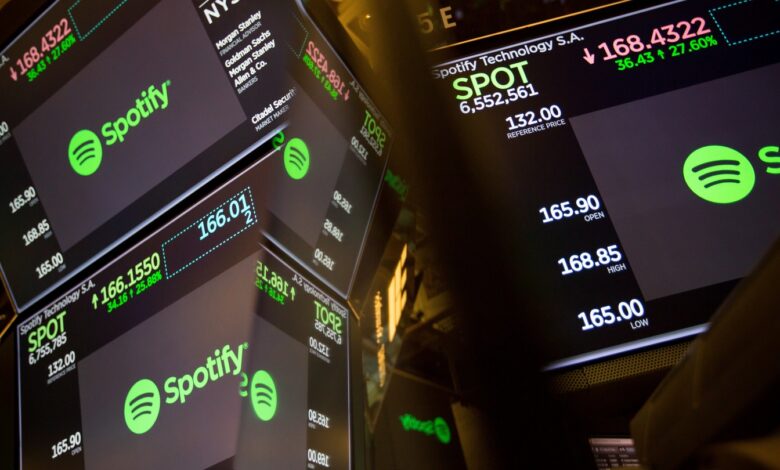
Spotify wants to connect a billion people who want to listen to music
Spotify Technology S.A. (SPOT), which lets people stream music, wants to connect about 1 billion users by 2030. Revenue is also expected to grow by several times by this time. Spotify started making big changes to its platform more than two years ago. Then, the service switched from only giving out music to giving out a wide range of audio content, mostly podcasts. Spotify plans to do a lot better by diversifying its services and adding new markets. By 2030, it wants to have 1 billion listeners and make $100 billion a year.
Due to the growth of technology, it will be possible to connect a billion users. In North America, Western Europe, Australia, New Zealand, etc., the company has made a lot of progress in the last two years. There is also a lot of room for growth in developing markets, where almost 3 billion people live, but Spotify hasn’t even reached 10%. The company is now in 183 countries around the world. One good thing for Spotify is that the rate at which subscribers leave has been going down: it went from 3.6 percent in 2018 to 2.5 percent in 2021. In some markets, the rate of money leaving the market is between 1% and 2%.
That is, the easier it is to grow the customer base, the fewer people leave. The goal of increasing revenue to $100 billion per year is directly linked to the goal of growing the number of people who watch to 1 billion. The company thinks that the average income per user will grow by four times in the next ten years. The plan is to do this by making more content available. For instance, you could add podcasts, audiobooks, news, sports, and educational content. The company also wants to offer more ways to advertise, which will also increase the amount of money each subscriber brings in.
Spotify also wants to get the gross margin up to 40%. Podcasts are thought to be one of the main reasons for this. So far, they are not making money, but music makes up about 30% of the gross margin for the company. But in the long run, things might change and the gross margin of podcasts might be higher than the gross margin of music content.